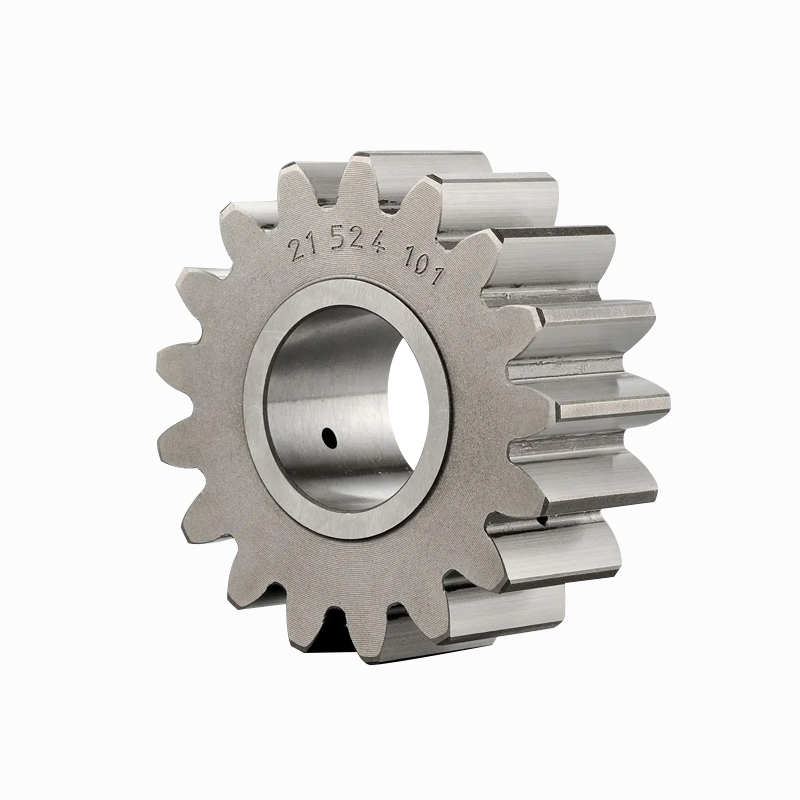No. 200 Gaoxin RD, Shanghua St, Lanxi, Zhejiang, P. R China
The Multiple Specifications Rack Pinion Gear is a versatile mechanical...
See Details
When ordering custom gears, several key factors must be carefully considered to ensure that the gears meet the specific requirements of the application. Custom gears are often essential for unique systems where standard gears may not provide the necessary performance or fit. By understanding the critical elements involved in the custom gear ordering process, businesses can ensure the successful integration and long-term durability of their gear systems.
The important factors to consider is the material used for the custom gear. The material directly affects the gear's strength, durability, and resistance to wear. Depending on the application, different materials may be required. For example, gears used in high-stress environments may need to be made from hardened steel, while gears used in lighter applications might only require a less rigid material like aluminum or plastic. It's also important to think about corrosion resistance. If the gears will be exposed to harsh chemicals or moisture, materials with rust-resistant properties, such as stainless steel, may be necessary.
Another crucial factor when ordering custom gears is the gear size and tooth specifications. Gears come in various sizes and tooth configurations, which must be accurately measured to ensure a proper fit within the system. The number of teeth, the pressure angle, and the pitch are all essential specifications that determine how gears mesh with each other. When ordering custom gears, precise measurements are critical for ensuring that the gears operate efficiently without slipping or causing excessive wear on other parts. Failure to meet these specifications can result in poor gear performance and a shorter lifespan.
Tolerance and precision are also vital considerations when ordering custom gears. High-precision gears are often required in applications where small errors can cause significant performance issues, such as in robotics or aerospace industries. Custom gears can be manufactured to tight tolerances to ensure smooth operation and minimize friction. It’s important to work with a manufacturer that can meet the specific tolerance requirements to prevent inefficiencies or mechanical failures caused by poor-fitting gears.
The gear type and design are additional factors that should be considered. There are various types of custom gears, including bevel gears, spur gears, helical gears, and worm gears. Each type has distinct advantages depending on the specific movement required. For example, helical gears provide smoother and quieter operation compared to spur gears, while bevel gears are ideal for applications that require a change in the direction of rotation. The design of the gear will depend on the specific needs of the machinery, such as the direction of force, load capacity, and desired speed.
Another consideration when ordering custom gears is the heat treatment process. Some gears require special heat treatments to increase their hardness and wear resistance. Heat treatment processes such as carburizing, induction hardening, or nitriding can enhance the lifespan of custom gears, especially in high-load applications. Choosing the right heat treatment process ensures that the gears will perform effectively under the required conditions.
Manufacturing processes should also be discussed when ordering custom gears. The gear production method, such as hobbing, shaping, or casting, plays a significant role in the final product’s quality and cost. For example, hobbing is a widely used and cost-effective method for producing gears with high precision, while casting is often employed for producing large gears with complex shapes. The manufacturing process chosen will depend on the complexity, volume, and precision required for the custom gears.
Consider the delivery time and cost when ordering custom gears. Custom gear production can take time, especially when dealing with complex specifications. It’s important to discuss times with the manufacturer to ensure that the gears will be delivered on schedule. Additionally, the cost of custom gears can vary significantly based on material, design, and manufacturing processes, so it’s essential to work with a supplier that offers a balance between cost and quality to meet budget constraints.
Ordering custom gears requires careful consideration of factors such as material, size, tooth specifications, tolerance, gear type, heat treatment, and manufacturing processes. Ensuring these factors are accurately addressed during the ordering process helps create gears that perform efficiently and last longer in their applications. By working closely with a reputable manufacturer, you can ensure that the custom gears meet your exact requirements, causing better system performance and reliability.